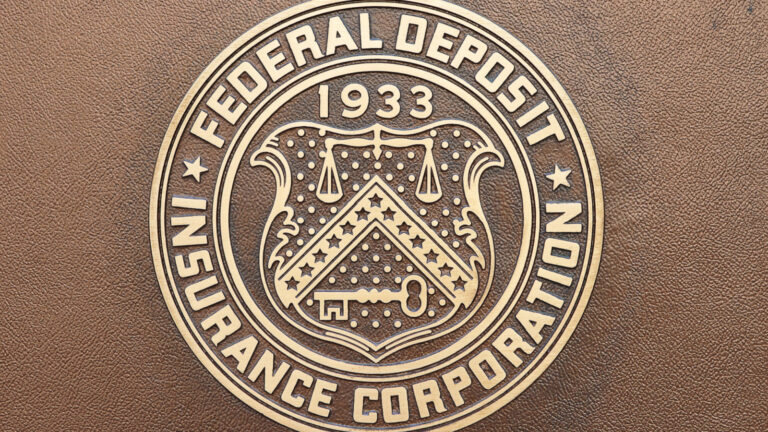Editorial Note: InvestorPlace Beacon independently determines what we cover and recommend. We earn a commission from affiliate partners on many offers and links. However, these commissions do not affect our editors' opinions or evaluations. Click here to read our full advertiser disclosure.

Source: Mark Van Scyoc / Shutterstock.com
The Federal Deposit Insurance Corporation (FDIC) and National Credit Union Administration (NCUA) provide government-backed insurance for banks and credit unions. These types of insurance provide protection to your funds in the case of a bankruptcy. Learn how each insurance type works to avoid your funds being at risk.
About the FDIC
The FDIC is a government corporation created to provide Americans financial security with deposit insurance. The FDIC only protects bank deposits, not credit union deposits.
If you have a deposit at an FDIC-insured bank and the bank fails, the FDIC will be responsible for returning your covered funds.
It should be considered a red flag if a bank isn’t FDIC insured. As of the first quarter of 2024, 4,600 institutions have FDIC insurance.
Most banks will clearly advertise if they’re FDIC insured. Brick-and-mortar banks usually have a sticker on their front door, and online banks tend to have the FDIC logo on their home pages.
| Pro Tip |
| The FDIC has a BankFind Suite database you can use to confirm that your bank has FDIC insurance. |
However, the FDIC doesn’t cover 100% of your deposits in each account. There are limits to FDIC insurance, depending on the amount and type of deposit you’re making.
FDIC Coverage Limits and Investment Types
The insurance coverage limit is $250,000 per depositor, per FDIC-insured bank, per ownership category.
| Covered by the FDIC | Not covered by the FDIC |
|
|
Source: FDIC
About the NCUA
The NCUA is a government agency that insures certain deposits at credit unions. If an NCUA-insured credit union goes bankrupt, the NCUA would be responsible for reissuing your funds.
Similar to the FDIC, most credit unions are NCUA-insured. Brick-and-mortar credit unions should have a sticker by their front door, and online credit unions must have the NCUA logo on their home page.
There are currently more than 4,000 NCUA-insured credit unions in the United States. Note that some state-chartered credit unions are under the regulatory authority of their state’s financial service division, not the NCUA.
| Pro Tip |
| You can visit the NCUA agency website to confirm that your credit union is NCUA-insured. |
It’s important to note that, just like FDIC-insurance, there are limits to which type of investment and amount is insurable.
NCUA Coverage Limits and Investment Types
The standard share insurance amount is $250,000 per share owner, per insured credit union, for each account ownership category.
| Covered by the NCUA | Not covered by the NCUA |
|
|
Loophole for Additional FDIC/NCUA Coverage
If the $250,000 coverage limit concerns you, there is a loophole that allows you to protect more of your money. Note how the limit is per FDIC- or NCUA-insured bank.
Let’s say you have $500,000 to invest. If you opened a $500,000 CD at one bank or credit union, $250,000 of your funds won’t be insured.
Instead, open one $250,000 CD at one bank, and another $250,000 CD at a different bank. That way, 100% of your deposit is insured.
If you have a large deposit to distribute across multiple banks and accounts, it’s in your best interest to speak to a financial advisor to ensure all your funds are properly insured.
Sources:
Federal Deposit Insurance Corporation. (2024, January 12). Key Statistics. Retrieved from https://banks.data.fdic.gov/bankfind-suite/bankfind
Federal Deposit Insurance Corporation. (2023, August 30). Your Insured Deposits. Retrieved from https://www.fdic.gov/resources/deposit-insurance/brochures/insured-deposits/
National Credit Union Administration. (n.d.). How Your Accounts are Federally Insured. Retrieved from https://ncua.gov/files/publications/guides-manuals/NCUAHowYourAcctInsured.pdf



